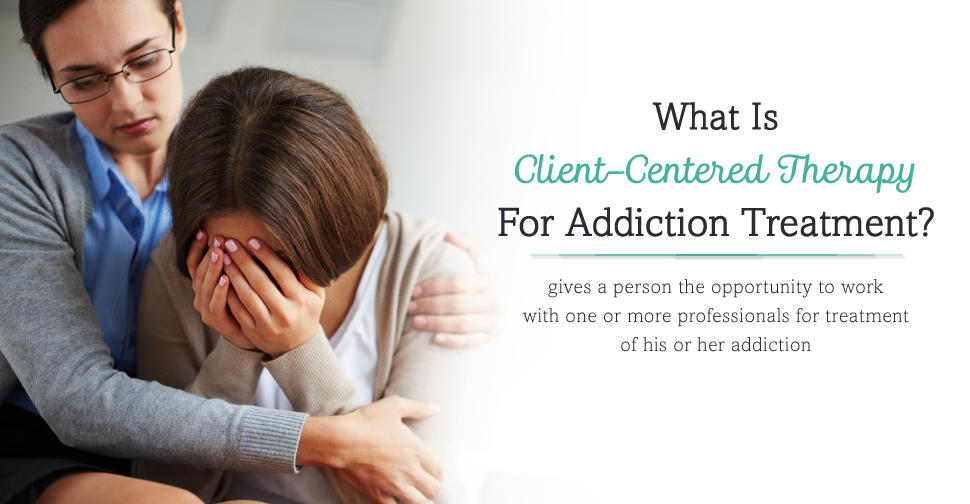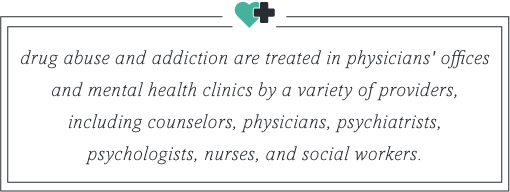
Client-Centered Therapy gives a person the opportunity to work with one or more professionals for treatment of his or her substance abuse problem. Whether initiation is the result of a compulsive disorder, anxiety disorder, eating disorder, a personal loss, or an addiction; treatment is required for a person to achieve wellness.
Client- Centered Therapy may consist of in-patient treatment, out-patient treatment, 12-step treatment, religious treatment, or agnostic treatment. Whatever the case, suitable treatment can be found for nearly every individual. Most certainly, with all of the options, a person in need of treatment can be pretty baffled when trying to decide what type of treatment is best for their addiction. Oftentimes, this decision is best supported by a professional.
Choosing The Right Therapist
Whether or not a person needs treatment can be determined through self-seeking and asking questions. To admit that one has a problem with addiction is often the first step. What is addiction? Addiction, as described by The National Institute on Drug Abuse, is when people who use drugs can’t stop taking a drug even if they want to. Some people need convincing that they need treatment as their need is not as obvious to them as it is to those around them.
As addiction takes a toll on a person’s life, they may lose a job, friends, a house, children, or their life. Some of those suffering from addictions are sentenced to therapy through a court system, and some go into treatment willingly–the point is that they get the treatment or therapy they need. Unfortunately, determining the right therapist is a bit more daunting than deciding what shirt you are going to wear today. A person’s first therapist or even the second may not be perfect fit, but this is no reason to stop searching. One must find a person they trust before the treatment can start working.
Find a Therapist or Treatment Center that Fits Your Individual Needs
Before choosing your therapist, you must recognize your individual needs, then you can begin researching your options. Since you are probably researching this for yourself or a person you know, keep in mind that there are over 14,500 facilities for drug treatment in the United States. This statistic can help you to understand that you aren’t alone and that treatment is readily available.
Alternatively, there are millions of people who do not receive treatment for their addiction, which can often lead to troubles like continued drug abuse, relapse, or death. Therapists vary in degree types and specialties, and there is absolutely a therapist within reach for you or your loved one.
Client-Centered Therapy Technique
As opposed to some Behavioral Health Treatments where a client’s recovery is dictated by a therapist, Client-Centered Therapy digs into the root of the problem of drug addiction by using personalized research about the client, and defining a new set of behaviors needed to stop using a drug. A Client-Based Therapy session places most of the responsibility on the client, while the therapist takes the back seat and listens.

In order to get the most out of treatment, a client must be honest about their drug use with doctors, therapists, loved ones, and themselves. Though an interjection from a therapist is often necessary to re-establish balance in the life of the addicted person, if one isn’t honest about their drug use, the therapist will be unable to provide the proper medical advice.
Taking an Active Role in Recovery From Addiction
In client-centered therapy, clients are given the opportunity to take an active role in their recovery. Along with specialized drug treatment facilities, drug abuse and addiction are treated in physicians’ offices and mental health clinics by a variety of providers, including counselors, physicians, psychiatrists, psychologists, nurses, and social workers. (DrugAbuse.gov)

Advantages and Disadvantages of Client-Centered Therapy
As stated above, the client is required to be honest with medical professionals about their drug use. This can be a difficult task for a drug addiction patient, because they want to protect their drug and its availability. Additionally, an addiction client may be concerned with legal trouble, and may be tempted to hide facts about their addiction.
If a client describes their addiction problem as being minimal, then they won’t have to stop using it. Right? What may bring some comfort in this instance is the fact that medical professionals swear an oath for doctor-patient confidentiality, and information shared with them is not shared unless somebody’s life may be in danger.

Keep in mind that 570,000 people die annually in the U.S. due to drug use. That breaks down to more than 480,000 deaths related to tobacco, about 31,000 due to alcohol, nearly 22,000 due to overdose from illicit (illegal) drugs, and close to 23,000 due to overdose from prescription pain relievers. (National Institute on Drug Abuse) A person struggling with addiction is likely to be in trouble if treatment is not sought.
Frequently Asked Questions Regarding Client-Centered Therapy
Of course with anything new, or that you are unsure of, there will be questions. There are professionals waiting to hear from you.
- I live in a remote area, is there treatment for me?
- Will I lose my job if my employer finds out I suffer from addiction?
- Do therapists specialize in all forms of drug use?
- Are these treatments covered by my medical insurance?
- What if I don’t need treatment, but I’m not sure?
- How do I know if Client-Centered Therapy is for me?
- Can I continue my progress in a 12-Step group along with CCT?
Client-Centered Therapy can save your life or the life of a person you love. If you have specific questions about the right type of treatment, contact DrugRehab.org today.
Sources
National Institute on Drug Abuse:
https://easyread.drugabuse.gov/content/what-addiction
https://www.drugabuse.gov/publications/drugfacts/treatment-statistics
https://teens.drugabuse.gov/national-drug-alcohol-facts-week/drug-facts-chat-day-drug-use


